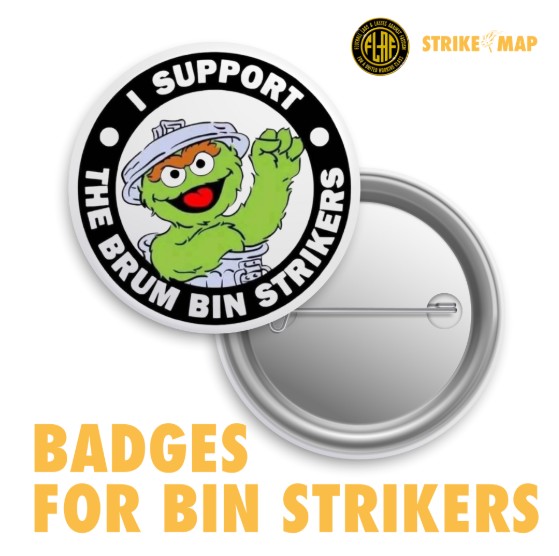On Monday 14 April, the result of the Unite ballot was announced. By 97 per cent the bin workers overwhelmingly rejected the latest offer from the Labour-controlled city council. The offer ‘still contained substantial pay cuts for some, and potential pay cuts for many more’. So, the solid all-out strike, which began on 11 March, after weeks of partial strikes, continues. The negotiations broke down again on17April with the council, fully backed by Labour nationally, still refusing to budge on the main points at issue..
It has announced that piles of rubbish around the city are slowly being cleared, and residents could soon expect a return of weekly collections. This is the result of using agency workers as strike breakers. Attempts by the bin workers to stop the scab lorries from leaving the depot by slow walking in front of them were banned by the police, who threatened arrests.
To rub salt into the wounds, according to a leaked message seen by the Telegraph a council cabinet member recently claimed, that the bin workers were overpaid. Presumably, he does not have to get up early on freezing mornings to travel the streets of the city clearing up other people’s mess and rubbish.
Councillors have refused to accept a petition from the public demanding a fair settlement, and army advisors have been called in to give logistical support to the council. You don’t need to be a PR expert to note that the optics of this are not good.
When the strike began, the managing director of the council, Joanne Lucille Roney CBE, was in Cannes, trying to strike up a business deal. She took the role in 2024 and is paid a salary of £295,000 per year – a 13% increase on the previous chief executive who earned £244,820. Bin lorry drivers in Birmingham typically earn £29,457 on average. Junior drivers might start at around £17,000, while experienced drivers can reach £37,440.
The city council want to cut £8,000 from their salaries. Why is it OK for the Managing Director’s salary to go up by 13%, while bin drivers’ much lower salaries are cut by 27% – especially at a time when the cost of pretty much everything is rising? And councillors recently voted through a 5-6% increase in their allowances.
How to win?
At present, we have stalemate. It seems clear that management and the establishment wish to inflict a defeat on this well-organised group of workers. However, for our side, the question is posed of how to win? And this question will be of vital interest to bin workers in other local authorities facing attacks.
In the days before Thatcher’s anti-union laws, it would be a lot easier; solidarity industrial action by other council workers would be the order of the day; but that is now illegal. While pressure needs to be put on the government to repeal this pernicious piece of legislation in its forthcoming Employment Rights Bill, as much solidarity as is possible needs to be developed immediately.

One recent welcome development is the production of badges for bin workers, selling at £1 each for the strike fund, but it will need a lot more than this. Forty years ago, when the miners’ strike began, the Birmingham TUC set up a Miners Support Committee, meeting weekly in to organise collections and other actions. How about something like that today? It would surely attract support from other council workers and services presently under the cosh, such as the libraries, day and social care, arts and culture, and the youth service. It could also build political support for the bin workers in the community.

